Comparative Muslim Societies Program
N. K. Jemisin: Building Our World Better

October 4, 2023
5:30 pm
Cornell University, Rhodes Rawlings Auditorium, Klarman Hall
Bartels World Affairs Lecture
Fantasy author N. K. Jemisin discusses how she learned to build unreal worlds by studying our own—and how we might in turn imagine a better future for our world, and reshape it to fit that dream.
Jemisin's lecture kicks off The Future—a new Global Grand Challenge at Cornell. We invite thinkers across campus to use their imaginations to reach beyond the immediate, the tangible, the well-known constraints. How can we use our creativity to plan and build for a future that is equitable, sustainable, and good? Learn more on October 4.
After her talk, Jemisin joins a panel of distinguished Cornell faculty to explore how we can take a brave leap into the visionary future. What can we collectively achieve when we focus on "what we want," rather than "what I can do"? And when we've imagined a better future for our world, how do we chart the path—starting today—with practical steps to take us there?
Anindita Banerjee, Associate Professor of Comparative Literature, College of Arts and SciencesJohn Albertson, Professor of Civil and Environmental Engineering, College of EngineeringKaushik Basu, Carl Marks Professor of International Studies, Professor of Economics, A&S***
A reception with refreshments will follow the lecture and panel.
Lecture: 5:30 | Rhodes Rawlings Auditorium, Klarman HallThe Future panel, featuring Jemisin and Cornell faculty: 6:15Reception and book signing: 7:00-8:00 | Groos Family AtriumReserve your free ticket for the in-person watch party.
General admission seating is now sold out. By registering for a watch party ticket, you will have an in-person seat reserved in an adjacent classroom near the auditorium where the lecture will be livestreamed. Please follow signage upon your arrival. All watch party attendees are invited to join the post-lecture reception and book signing at 7:00 in Groos Family Atrium, Klarman Hall.
Livestream: For Local, National, and International Viewers
The lecture and panel will be livestreamed. Register to attend virtually at eCornell.
***
How are N. K. Jemisin’s novels acts of political resistance? Read a Bartels explainer by Anindita Banerjee.
***
Book Signing
Ithaca’s cooperatively owned independent bookstore, Buffalo Street Books, will be selling a wide selection of N. K. Jemisin’s books after the lecture.
Meet N. K. Jemisin and get your book signed at the reception!
***
About N. K. Jemisin
N. K. Jemisin is the first author in the science fiction and fantasy genre’s history to win three consecutive Best Novel Hugo Awards, for her Broken Earth trilogy. Her work has also won the Nebula and Locus Awards. She was a 2020 MacArthur Fellow. Jemisin’s most frequent themes include resistance to oppression, the inseverability of the liminal, and the coolness of Stuff Blowing Up. She has been an advocate for the long tradition of science fiction and fantasy as political resistance and previously championed the genre as a New York Times book reviewer. She lives and works in New York City.
***
About Global Grand Challenges at Cornell
Global Grand Challenges bring together Cornell's world-class strengths—vision, expertise, people, and resources—in a multiyear focus to understand humanity's most urgent challenges and create real-world solutions. Global Cornell organizes and supports related research collaborations, courses and academic programs, student experiences, campus events, and more. Cornell's first Global Grand Challenge is Migrations, launched in 2019.
***
About the Bartels World Affairs Lecture
The Bartels World Affairs Lecture is a signature event of the Mario Einaudi Center for International Studies. This flagship event brings distinguished international figures to campus each academic year to speak on global topics and meet with Cornell faculty and students, particularly undergraduates. The lecture and related events are made possible by the generosity of Henry E. Bartels ’48 and Nancy Horton Bartels ’48.
Additional Information
Program
Einaudi Center for International Studies
Reppy Institute for Peace and Conflict Studies
Comparative Muslim Societies Program
East Asia Program
Southeast Asia Program
Latin American and Caribbean Studies
Institute for African Development
Institute for European Studies
South Asia Program
The Next Generation’s Initiative: Learning from the Past to Build the Future of Afghanistan

September 9, 2023
9:00 am
L28 Hughes Hall
This conference aims to bring together Afghan scholars and Afghanistan experts, primarily the next generation, to engage in discussions about the future of Afghanistan by analyzing past failures.
Afghanistan has faced conflict, crisis, instability, and civil war for the past half-century. In each period, political elites implemented top-down approaches, paired with external interventions, to overcome these problems. Unfortunately, these political frameworks failed to bring about lasting positive change in Afghanistan. The people of Afghanistan have experienced communist, Islamic, and democratic regimes, and they have witnessed the destructive consequences of these political designs. To envision a better tomorrow for Afghanistan, it is crucial for the country's next generation of scholars to critically examine the past and ask several critical “what” and “why” questions.
What events led us to the current situation? What failures and problems prevented us from seizing opportunities for state-building and nation-building? Why did different political designs fail in Afghanistan? Why did the democratic establishment collapse? Why has Afghanistan been unable to utilize international aid effectively for infrastructure and development? By asking such questions, we can move on to asking “how” questions. How can the people of Afghanistan come together, learn from the past, and build a brighter future? This future must be inclusive, egalitarian, multicultural, democratic, free, and, above all, a home for every citizen of the country.
SCHEDULE
9:00 am Welcome Sharif Hozoori, South Asia Program, Cornell University
9:15-10:45 am Panel 1: Balancing Governance in Afghanistan: Secularization, Sharia, and Patrimonialism
Farid Tookhy, Senior Fellow, Institute for Peace & Diplomacy Divergent Notions of Political Authority: A Century of Theoretical and Physical Contestation
Mohammad Mansoor Ehsan, International Affairs, George Mason University Sharia Vigilantism Under the Taliban Rule in Afghanistan
Zinab Attai, Government, Cornell University Seeing like a Neopatrimonial State: Reframing the Study of Afghanistan’s Political Architecture
Chair: Mathew Evangelista, Government, Cornell University
11:00 am – 12:30 pm Panel 2: Afghanistan's Nation-Building Struggle: Identity, Inclusivity, and the Public Sphere
Mirwais Balkhi, Fellow, Wilson Center Afghanistan’s Next Generation’s Initiative: A New Social Contact for Living Together
Omar Sadr, Public and International Affairs, University of Pittsburgh The Rise and Fall of Afghanistan’s Public Sphere
Sayed Hassan Akhlaq, Philosophy and Critical Thinking, Coppin State University Acknowledging Effective Afghan subjectivity
Chair: Seema Golestaneh, Near Eastern Studies, Cornell University
1:30-3:00 pm Panel 3: Constitutional Law: Political Order, Rule of Law, and Public Perspectives
Bashir Mobasher, Sociology, American University Islamic Republic versus Islamic Emirate: What Constitutional Order People Want?
Mahir Hazim, Law, Arizona State University The Politics and Constitutionality of Law-Making in the Afghan Republic: An Authoritarian and Unrestrained Executive
Shamshad Pasarlay, Law, University of Chicago A Constitutional Postmortem: The Rise and Fall of Afghanistan’s 2004 Constitution
Chair: Chantal Thomas, Law School, Cornell University
3:00 pm Conclusion Tawab Danish, Law School, Cornell University
Register to attend virtually. No registration required for in-person attendance.
Organized by the South Asia Program and the Cornell Law School's Clark Initiative for Law and Development in the Middle East and North Africa. Cosponsored by the Departments of Near Eastern Studies and Government, and the Religious Studies, Comparative Muslim Societies, and Peace & Conflict Studies Programs.
Additional Information
Program
Einaudi Center for International Studies
Reppy Institute for Peace and Conflict Studies
South Asia Program
Comparative Muslim Societies Program
CANCELLED - Trading and Raiding in the Philippines Archipelago in the 7th-18th Centuries: History and Archaeology of Muslim and Spanish Encounters
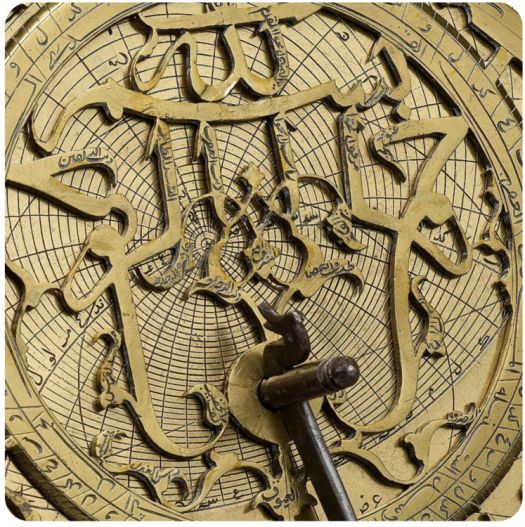
September 28, 2023
4:30 pm
Uris Hall, G08
Talk by Laura Lee Junker
The history of the Philippines is unique in Southeast Asia's islands in that the country has 14 massive islands, 7000+ smaller islands, and 200+ languages. Strangely, among the historical entities in these thousands of equatorial islands, none of the area's languages were written down. Both historical and archaeological evidence shows us that Chinese, Japanese, Indonesians, Vietnamese, Cambodians, and Indic populations all powered trade well before the 10th century. Area ports sent commerce and numerous missions to the Chinese court. Islamic groups in the Philippines, particularly in what would become Manila, as well as from the southernmost island of Mindanao prior to the influx of Spanish colonizers in the 16th century, also participated in diplomacy and trade. The extensive diversity of various groups on the rugged Filipino landscape, including small bands of Ata and tribal peoples (Bukidnon) living in the mountainous cores of massive islands, supplied equatorial products that connected chains of manufacture sailing from the west and north, down to the tropical belt. In this presentation, Archaeology melds with "material histories" (such as archaeology) and "written histories" (from many viewpoints) in telling this complex story.
Additional Information
Program
Einaudi Center for International Studies
Comparative Muslim Societies Program
Southeast Asia Program
Dreaming Sufism in the Sokoto Caliphate: Dreams and Knowledge between Natural Philosophy, Theology, and Sufism in the works of Shaykh Dan Tafa
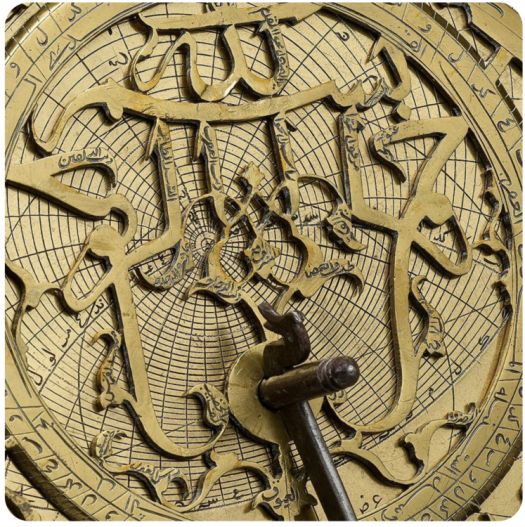
September 14, 2023
4:30 pm
Uris Hall, G08
Talk by Oludamini Ogunnaike
This talk explores four remarkable works (currently in unpublished manuscript form) by ‘abd al-Qādir ibn Muṣtafā (known as “Dan Tafa”) (1804-1864), a 19th-century West African Sufi scholar of the Sokoto Caliphate, to examine the ways in which dreams were theorized in the unique synthesis of Sufi, occult, philosophical/medical, theological, and exegetical disciplines that characterized discourse about dreams and dream interpretation in Muslim West Africa on the eve of colonial conquest, and what this can tell us about the distinct conceptions and practices of the human self and knowledge current in the region. The talk will conclude with a brief discussion of the importance and onto-epistemological status of dreams in contemporary West African Sufi communities and attempt to consider why dreams have been and remain so important in these traditions, but not in others.
Additional Information
Program
Einaudi Center for International Studies
Comparative Muslim Societies Program
Institute for African Development
Unveiling the Global Middle Ages: Muslim Perspectives and Encounters with East Asia in Premodern Interactions
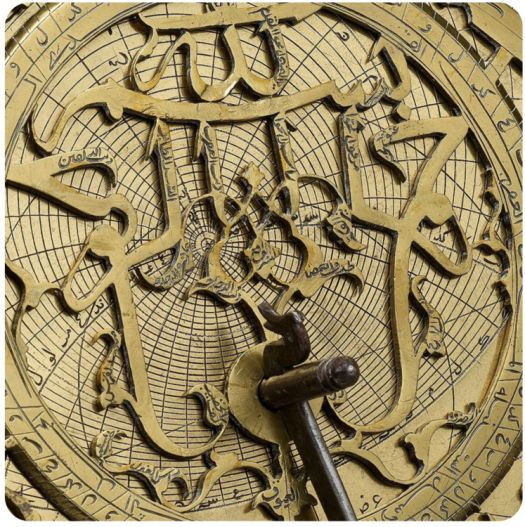
August 31, 2023
4:30 pm
Uris Hall, G08
Talk by Hyunhee Park, History, John Jay College of Criminal Justice, CUNY
This presentation delves into the historical interactions and perspectives of Muslims concerning East Asia during cross-cultural exchanges in the premodern era. The Islamic civilization, which emerged in the early seventh century, rapidly expanded and evolved into one of the world’s most prosperous and influential societies during the medieval period. Muslim merchants from the Middle East played a dominant role in the Indian Ocean trades, regularly undertaking voyages to reach China, a paramount commercial hub in premodern Afro-Eurasia. Their contributions greatly facilitated the exchange of people, goods, and ideas across Afro-Eurasia, thereby shaping the global nature of the medieval period. The premodern interactions between the Middle East and East Asia serve as exceptional case studies for understanding the Global Middle Ages, as they offer a wealth of literary and cartographic sources left behind by scholars and firsthand observers from both societies. By comparing evidence from these sources, including written records and maps, we aim to identify patterns of continuity and change in geographic understandings, particularly during the Mongol and post-Mongol eras when both worlds experienced significant political transformations. This exploration allows us to comprehend how Muslim societies developed their conceptualization of the wider world, while also being influenced by it. Importantly, it reveals the active participation of Asian civilizations in global interactions well before 1492, challenging the notion that globalization began solely with European expansion.
Additional Information
Program
Einaudi Center for International Studies
Comparative Muslim Societies Program
East Asia Program
Faith and Floods: Everyday Encounters with the Incompleteness of Reality in Post-diluvian Karachi
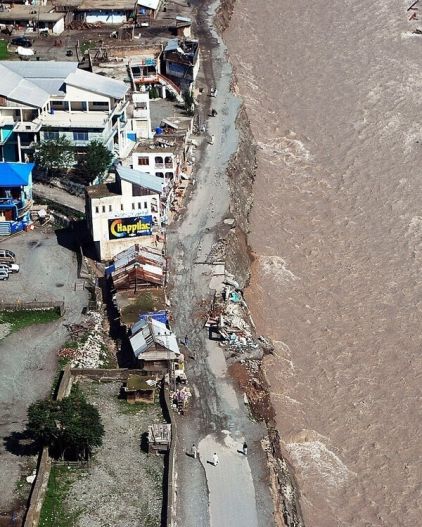
September 18, 2023
12:15 pm
Uris Hall, G08
Talk by Adeem Suhail (Anthropology, Franklin & Marshall College)
This talk is based on ethnographic explorations of the broken worlds the denizens of contemporary Karachi, Pakistan, inhabit. It examines the period between two catastrophic floods in 2020 and 2022. By observing the efforts of the Wasted to piece together new realities amidst the ruins, the study seeks to understand the everyday processes and practices involved in conjuring through faith a commons as an infrastructure for troubled times. In Karachi, the ruptures caused by a convergence of crises have disrupted the city's function as a labor-driven engine of value creation. With the demise of postcolonial modernity, the city has entered a different temporality, characterized by multiple broken worlds experienced by its inhabitants. Engaging in cosmological speculation, conspiracy theories, and mythopoesis, individuals grapple with uncertainties and possibilities rooted in post-colonial and decolonial practices that produce ambivalent outcomes. Crises here manifest in jagged details that cut. Highlighting the vitality and creativity of the marginalized in contrast to the oppressive practices of the ruling classes who have dubbed these multitudes as being already-sacrificed (nazar hona) and thus Wasted (zaya hona), the talk proposes the idea of a new politics of the Sacrificed and the Wasted.
Adeem Suhail is an Assistant Professor of Anthropology at Franklin and Marshall College. His research addresses issues in the anthropology of violence, social theory, and urban studies. His current project, Machines of Violent Desire, interrogates how non-state violence and transnational kinship networks contribute to order-making in urban South Asia, especially in the context of ecological and political fracture. He is concurrently working on another co-authored book project with David L. Nugent, titled Sacropolitics, which addresses how human communities confront emergent ecological and political crises across the globe through a politics of repair and rejuvenation. His recent publications include Urban Rearrangements: A Movement in Five Suites (IJURR, 2023) and Unarchiving Baloch History: ‘Small’ account of Baloch women that make waves in the Indian Ocean (2023).
Additional Information
Program
Einaudi Center for International Studies
South Asia Program
Comparative Muslim Societies Program
International Fair 2023

August 30, 2023
11:00 am
Uris Hall, Uris Hall Terrace
The annual International Fair showcases Cornell's global opportunities for undergraduate and graduate students. Explore the fair and find out about international majors and minors, language study, study abroad, funding opportunities, global internships, Cornell Global Hubs, and more.
The International Fair is sponsored by the Mario Einaudi Center for International Studies and Office of Global Learning (both part of Global Cornell), with Cornell's Language Resource Center.
Register for the event on Campus Groups.
Additional Information
Program
Einaudi Center for International Studies
Reppy Institute for Peace and Conflict Studies
Comparative Muslim Societies Program
East Asia Program
Southeast Asia Program
Latin American and Caribbean Studies
Institute for African Development
Institute for European Studies
South Asia Program
Art and Migration

June 9, 2023
9:00 am
Goldwin Smith Hall, G64
The often-fraught pathways of human migration come alive through art. From storytelling to innovative sculpture, theater, cartoons, and painting, students, faculty, and artists supported by the Migrations Global Grand Challenge will tell their stories and showcase their art.
Anindita Banerjee, associate professor of comparative literatureDebra A. Casillo, Emerson Hinchliff Professor of Hispanic Studies and professor of comparative literatureJuan Harmon, MFA creative writing candidatePedro Molina, Nicaraguan cartoonist and journalistNatasha Raheja, assistant professor of anthropologySharifa Sharifi, Afghan artistGemma Rodrigues (Herbert F. Johnson Art Museum) and Eric Tagliacozzo (history) will moderate.
Register now.
Additional Information
Program
Einaudi Center for International Studies
Comparative Muslim Societies Program
Latin American and Caribbean Studies
South Asia Program
Faculty Keep Their Eyes on Sudan
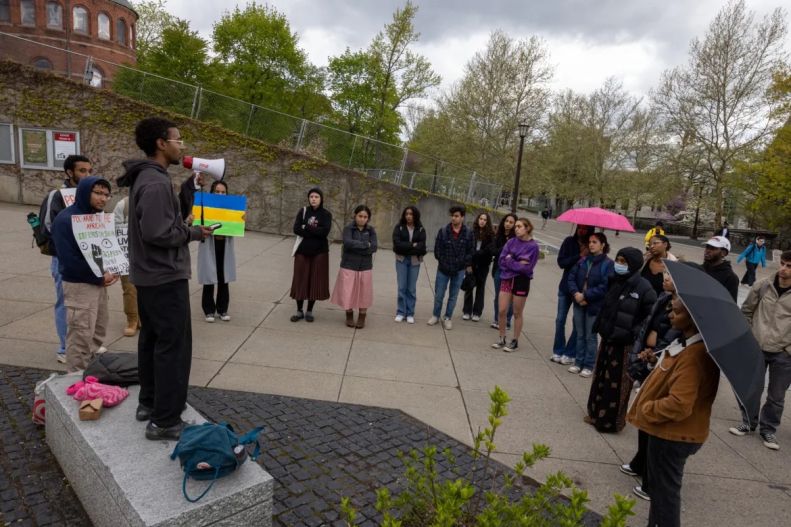
Mostafa Minawi, CO+POS
Cornell Daily Sun coverage: Following the developments in Sudan, the Critical Ottoman and Post-Ottoman Studies initiative of the Mario Einaudi Center for International Studies held a webinar on May 4 entitled Sudan: Insight into Current Events.
Additional Information
Announcing 2023 Awards

Einaudi Seed Grants Finding Fertile Soil
Read about new awards and research funded in 2022, including Alex Flecker (Amazon aquaculture) and Victoria Beard (Global Survey of City Leaders).
